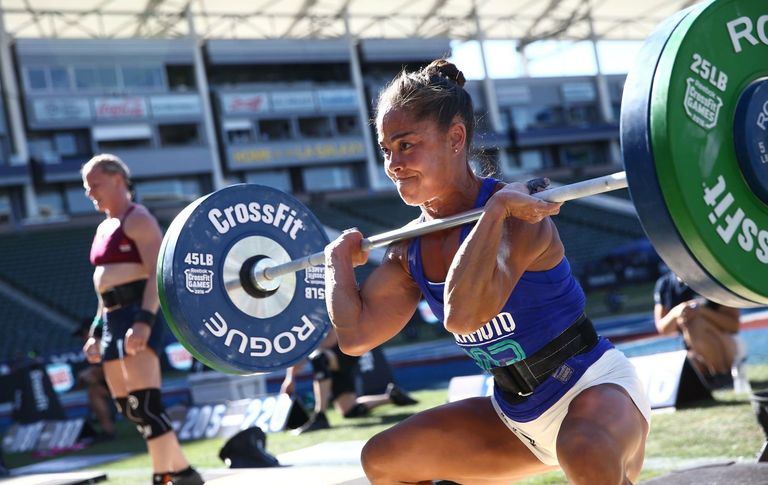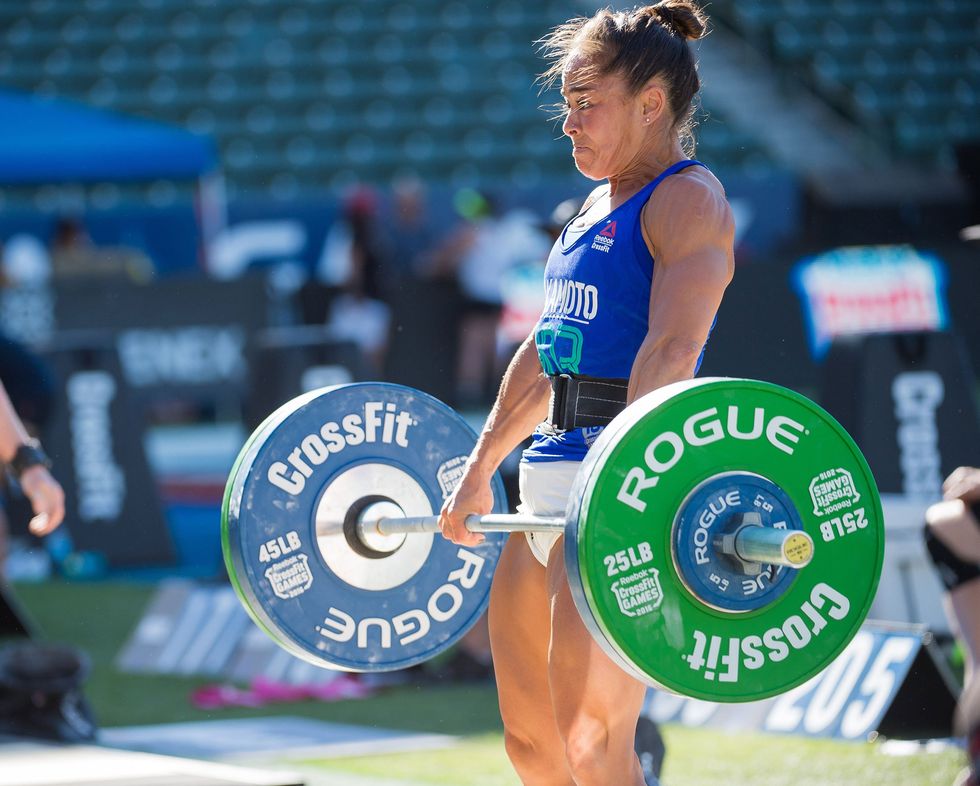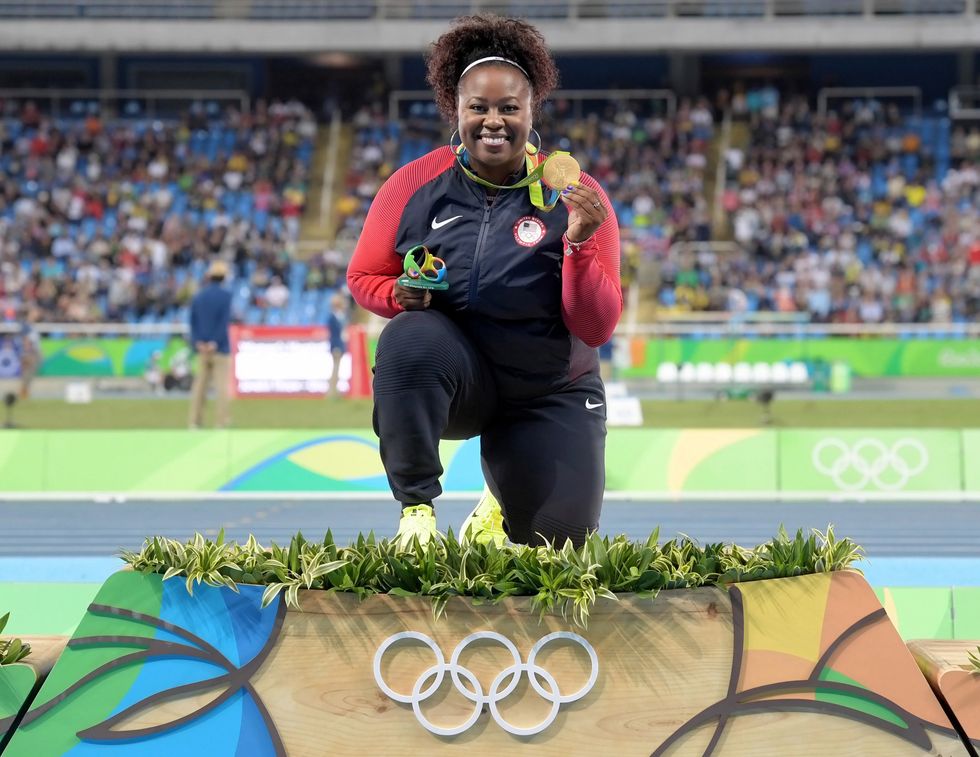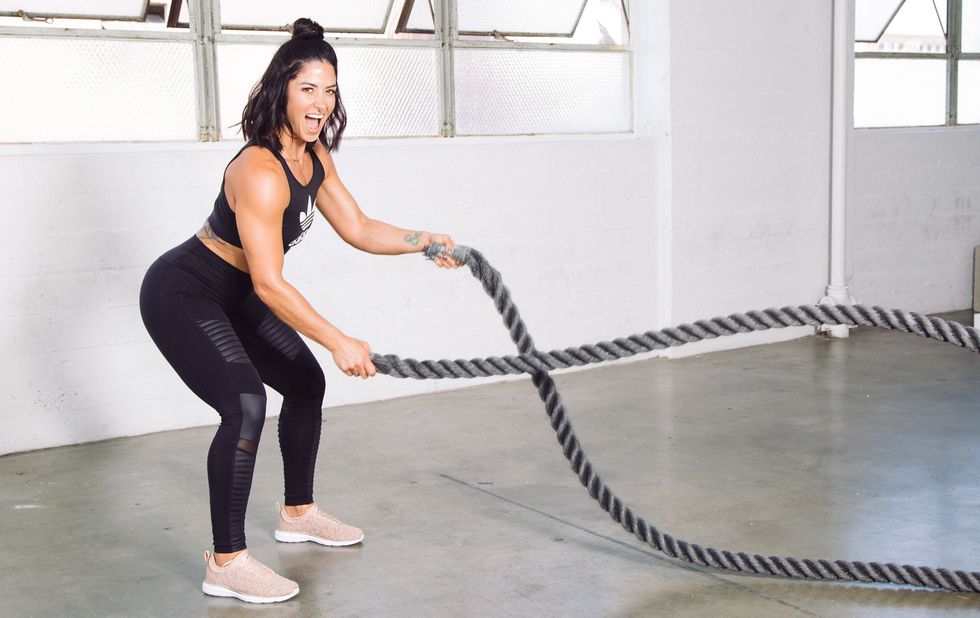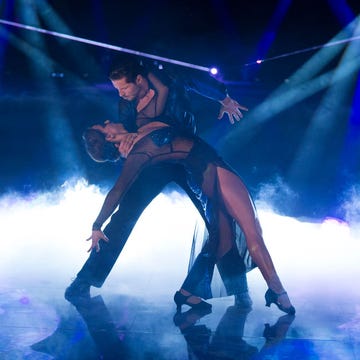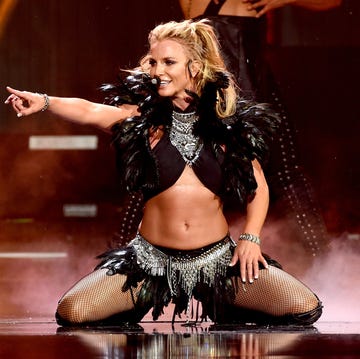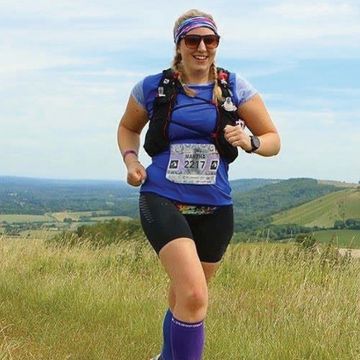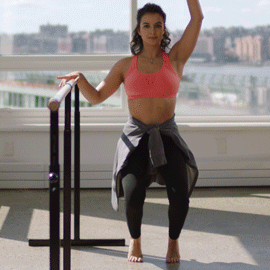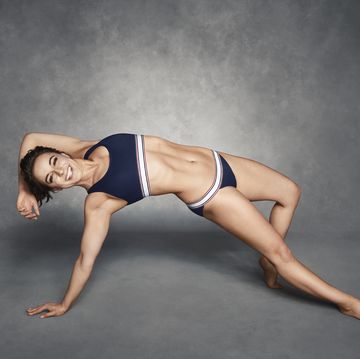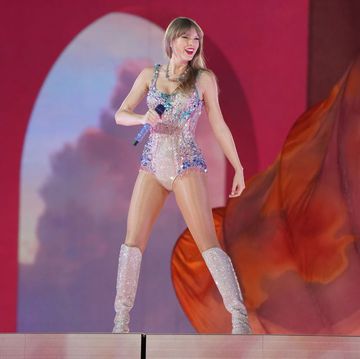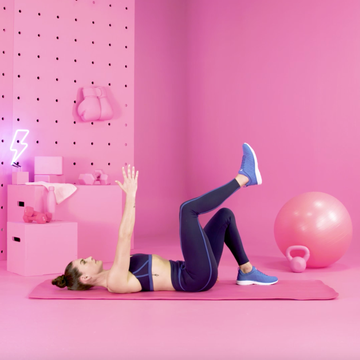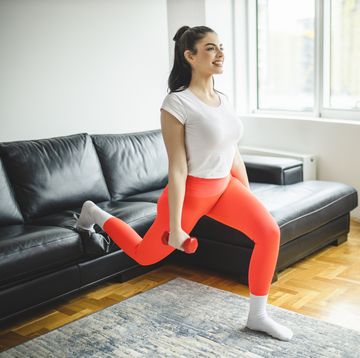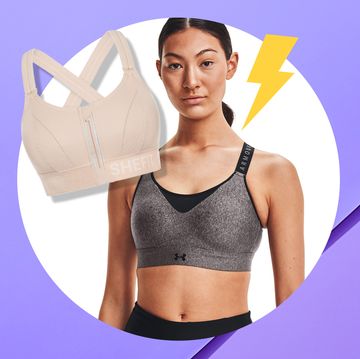After three decades (ahem, centuries) of society placing women’s value in their thinness and casting strength as unequivocally male, strong is starting to win out over skinny.
Currently, more than 5.3 million Instagram posts are sporting the hastag #strongnotskinny, and another 3.6 million are adorned with #strongwomen. Increasingly more women are joining fitness programs aimed at packing on muscle size and strength, and weight rooms are suddenly looking less bro-tacular than they once were.
But while this movement is awesome—and sure beats the pants off of internet fascinations like the thigh gap—they run the risk of giving women just one more hurdle to jump in the road to beauty and body acceptance, says Renee Engeln, Ph.D., a body-image researcher and director of the Body And Media Lab at Northwestern University.
“I believe these ‘strong, not skinny’ mantras come from a good place, but I’m really worried about them," says Engeln. "All you have to do is look up #fitspo to see that many people just use ‘strong’ as a codeword for thin with visible musculature." She notes that research shows prioritizing what your body can do versus how it looks is, psychologically, the healthier way to go.
However, Engeln warns that getting too caught up in the numbers on your barbell can be just as unhealthy and demoralizing as getting caught up in the numbers on your scale.
"When I first started getting really into strength training, I put a lot of pressure on myself to reach certain standards or to have a certain aesthetic body type and also be strong," says Neghar Fonooni, a women’s fitness coach, speaker, and writer. "Shedding those aesthetic pressures is a whole other thing in and of itself, but I think that there’s this tendency for women to trade the obsession with how our bodies look to the obsession with how our bodies perform. We think things like, ‘I’m validated by how much weight I can lift’ or ‘she can do so many pullups and I can only do two.’"
That’s why it’s so important to remember that strength is so much more than how much weight you can squat or how many pushups you can rock—and has nothing to do with what the woman is doing at the pullup bar next to you.
So what does being strong really mean? Well, it depends on whom you ask. We passed the mic to three women whose careers are based on being strong, and gave them one simple, hugely loaded, prompt: “To me, being physically strong means…”
Annie Sakamoto
Crossfit Masters Champion
Annie Sakamoto finished 3rd overall in the women's masters category (ages 40-44) at the 2017 CrossFit Games. She is a CrossFit trainer since 2004.
"To me, being physically strong means being physically able to do most anything I want to do. Obviously there are weights that I haven’t lifted or might never lift. But overall, anything I want to do—whether it’s trying new sports, surfing with my kids, or being active with my husband—I can do.
"That’s one of the reasons I enjoy doing CrossFit and have for so long. It provides me a physical and mental challenge and shows me that I can do more than I would have thought possible. Having the courage to even try to tackle some of my CrossFit programming is huge for me. It’s really easy to think, ‘Oh my gosh, I don’t know if I’m going to physically be able to do this,’ but so much of your ability to do something is actually more mental than physical.
"The most important thing for me is how much physical strength goes hand in hand with mental and emotional strength. I think for me a lot of it is a balance between challenging myself in the gym and then enjoying time outside of the gym with my family or friends where I’m not so focused about what I may have done or not done in the gym. I think there has to be that balance.
"I have a daughter who is 11 and a son who is about to be 9. I want to be a good role model for my kids and show them that it’s good to challenge yourself physically and mentally. My daughter is built like I am, and I remember growing up as an Asian American, having bigger thighs and a bigger butt, I was really self-conscious about that. I want my daughter to really value her body and her strength, and not to be self-conscious about or place her value in her looks. For me, my physique is a byproduct of what I’m doing in the gym. I’m not doing CrossFit to have nice shoulders, or a good butt, or whatever it may be. I’m doing CrossFit because I really enjoy the mental and physical challenge. And then, for my son, I want him to value a woman who is strong both mentally and physically, as a mom, as a friend, as a sister, as a potential romantic interest… whatever that may look like.”
Michelle Carter
Olympic Gold Medalist U.S. Shot Putter
Michelle Carter is a 2016 Olympic gold medalist in shot put. She and her father are the first daughter and father to have each won an Olympic medal for the U.S. (Michelle’s father, Michael, was also a shot putter). She is the founder of You Throw Girl, an empowerment camp for young female athletes.
"To me, being physically strong means never giving up on what your body can do. Everybody’s body is created to do something different. I’m big and strong for a reason, and I don’t want that to go to waste.
"At one point, women weren’t allowed to throw the shotput because it wasn’t looked at as feminine. Just breaking those stereotypes, knowing that I can throw this heavy ball in some dirt and still be sexy and still feel like a woman, is awesome. It doesn’t take away from who I am as a woman. I’m maximizing what I have and what my body can do.
"My parents always pushed me, encouraged me to not listen to what others told me I couldn’t do, and told me that I had the ability to do anything that I wanted to do. This mindset definitely spilled over in every area in my life. As a kid, when I came across any type of situation or boundary, even if I felt like I couldn’t do it, I still knew that I could. I just had to figure out how to get to the other side.
"Now, I’m constantly trying to get to that place where I feel like I can’t do something in my sport and then push past it, even if it's a struggle. I’m pushing past what’s comfortable. After all, you could have all of the physical strength in the world, but if you don’t believe you can do something, it’s not going to happen for you. That mental strength and belief in my physical abilities has played a very huge role in my success in the sport.
"I get a lot of messages from young girls and from parents where they say, ‘Oh, I wish I had confidence like you,’ or, ‘Oh, I want my daughter to have more confidence.’ So I have started a body-confidence camp to empower young female athletes to push themselves, to be the best that they can be not just in sports, but in life. We can be the best in the world at what we do, and why not do it?
"I feel like strength comes from within. Just believing in yourself and that your opinion about you matters most—I think that’s where strength begins. You can lift all the weights, you can do all these things, but if you don’t believe you can do it, you’re still going to fail. Once you practice building that muscle inside of you, believing in yourself and having that faith in yourself and loving yourself, then you’ll always have the strength to overcome anything.”
Neghar Fonooni
Women's Fitness Coach, Speaker, and Writer
Neghar Fonooni is a fitness & lifestyle coach, feminist, writer, activist, veteran, and mom. She is passionate about helping women become their most powerful, purposeful selves.
"To me, being physically strong means being able to use my body freely. That’s something that I think feels very liberating. I think to live in a body that I didn’t have the ability to move and act freely in would feel like being trapped. It would feel very suffocating.
"Furthermore, I think that it’s really important that if we have the physical ability to be strong that we obtain it, that we use it. At a very basic level, it’s showing gratitude for movement. Moving is your body’s requirement, it’s our bodies’ natural state of being. If we have the ability to move, we should.
"Being physically strong, however, is also liberating because it allows me to feel as though there’s a lot that I can do for myself. For example, I do a lot of gardening, so being able to lift and move things and do all that and have it not be cumbersome or laborious is really important to me. That has always been a really major driving force for me, also I really enjoy hiking and sports and being outdoors and being active in general, so being able to do that without like getting winded all the time is important.
"As a feminist, being able to take care of myself, being able to not ask for assistance with putting my suitcase in the overhead bin, being able to carry all of my groceries, being able to do things manually, is really important to me. There is a sort of self-sufficiency that comes with physical strength. Living in a culture that is highly patriarchal and where we do have a lot of internalized misogyny, there often is that expectation that we as women need men to do difficult tasks for us. So, as a woman, being able to take on physical tasks for myself is, in a way, an act of defiance against a culture that seeks to keep us small. Being strong, on a political level, is extremely important to me.
"Emotionally speaking, the gym is my therapy. I have an actual therapist, and I think that is extremely important as well, but I can’t see her every single day. I can, however, go to the gym every day and I can do something with my body every day. So when I do something that’s strong—in my relative level of strength, not comparing it to standards or to anyone else’s level of strength, just within my own journey of strength—it makes me feel capable emotionally. There’s that feeling of like, ‘If I can do this, if I can just handle this, if I can squat X pounds, if I can do X amount of pullups, if I have the freedom with my body to be able to do things that are strong for me, than I’m emotionally capable of handling a lot.’ There is a level of confidence and empowerment that comes with being able to do strong things with your body, whatever that means for you, that carries over into every other aspect of your life.
"For me, the first time I felt this in a major way was when I did my first unassisted pullup. I experienced a feeling of freedom and power that I wish I could just bottle and give to every woman around the world. It felt like if I could do that, I can do anything. If I could do this thing that once felt impossible and now feels so attainable to me, there’s so much more I can do.
"Over time, my own definition of strength has really changed because it’s become less about chasing numbers and needing validation through lifts and through strength and more of a holistic process. It’s about honoring what my body is capable of doing that day in that moment and really recognizing that and being more intuitive with my body.
"It allows me to understand and appreciate the fact that some days I’m going to absolutely crush and some days I’m just there putting in the work, and that’s a win. You’re not going to hit a PR every time you go to the gym, and that’s okay.”
